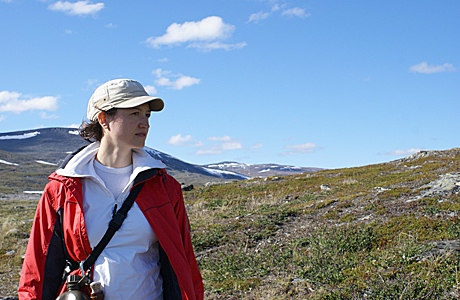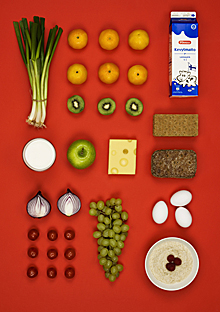

Viewpoints
Viewpoints is a blog in which different writers express their views and opinions on current topics. A new blog post is published about once every four weeks.
You can propose texts by e-mail to viestinta@kesko.fi. The maximum text length is 2,000 characters.
Responsibility is full of value choices

Galina Kallio is a researcher in the Aalto University School of Economics.
Food has recently been a popular topic both in public and by the sandpit. Besides citizens and the media, companies and the authorities have also eagerly participated in the discussion on the responsibility of food production and the current global food management system. Attention has been paid to various production and processing methods, the centralisation of food chains, eating habits and nutritional knowledge, as well as food wastage and shrinkage.
We have also seen how non-governmental activities for creating more responsible, fair and sustainable food service have become more visible and active. The traditional food industry and system have been complemented with many alternatives: food cycles, urban shops, farm markets and market halls specialising in alternative food, urban growers and consumers' own field projects as well as pop-up phenomena have provided new kinds of options for food production, processing, distribution and consumption.
Discussions on the sustainability of food production and the food management system and the parties' responsibility have, however, often been characterised by juxtaposition and black and white thinking. In the background, there are competing logics on what a sustainable food management system should be like and who should bear responsibility for it. This makes it difficult to create a constructive dialogue between different parties.
Global and local, industrial and small-scale, natural and conventional, vegetarianism and meat eating, additive-free and chemical food, low-carb and carbohydrate-heavy diets are placed on opposite sides. If you are pro vegetarian, you oppose meat-eating. If you want to favour local organic food, you want to go back to the past. If you reject additives, you are a green fanatic. If you want to avoid shopping in large superstores, you're elitist.
Various parties' ideas on what is sustainable from the viewpoint of the environment, people and economy sometimes differ very much from each other. The problem is that ethical and ecological, healthiness and safety, quality and naturalness are understood in different ways. For someone, sustainability means favouring domestic origins, for someone else it is eating vegetable-based organic food. In animal rights issues, some fight about the suitable size of chicken cages or pig stalls, while the other challenge the entire industrial animal production - and mass consumption of meat.
 While some argue about the eco-efficiency of factory-made macaroni casserole compared with home-made one, others remind of the importance of doing things together and continuing traditions. Economical approach may be manifested in sparing and buying foods at reduced prices or planning the use of ingredients carefully and minimising wastage. Responsible business can be any business activity carried out in a responsible way or involving a responsible business idea.
While some argue about the eco-efficiency of factory-made macaroni casserole compared with home-made one, others remind of the importance of doing things together and continuing traditions. Economical approach may be manifested in sparing and buying foods at reduced prices or planning the use of ingredients carefully and minimising wastage. Responsible business can be any business activity carried out in a responsible way or involving a responsible business idea.
In reality, the root of the problem lies deeper than in confrontation in food issues: discussions about responsibility are based on values. Practical actions contain value choices. Accordingly, it would also be useful to enter into a discussion about what kind of values the current Western food culture and the related food industry support. In addition to ordinary citizens, company representatives, authorities, politicians and researchers should take courage and participate in responsibility discussions from the value perspective.
There should be a major social and cultural change, making responsibility everyone's business: companies, politicians, researchers, authorities, the media and citizens. Every party shares the responsibility for building together a food system that is sustainable for the environment, socially fair and financially profitable.
Galina Kallio
Researcher, Aalto University School of Economics, Corporate Environmental and Social Responsibility Research (CESR)